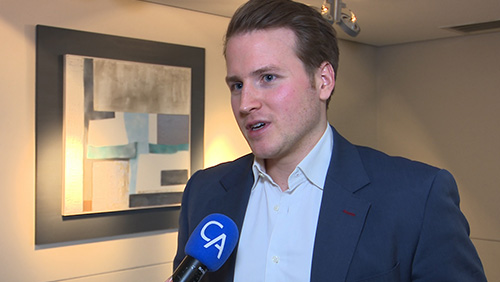In this interview with CalvinAyre.com’s Becky Liggero, Benedikt Manigold of Cubits weighs in on the virtual currency debate.
To regulate cryptocurrency or not to regulate cryptocurrency? That is the question.
The debate on virtual currency regulation may not be as old as Hamlet’s time but it sure is a very touchy topic. For one, regulators face the dilemma of a decentralized currency taking reigns of their country’s economy if cryptocurrencies are not regulated.
Regulating cryptocurrency, on the other hand, means that regulators may lose out the possibility of creating their own digital currency.
Benedikt Manigold of Cubits understand the dilemma that many governments face in dealing with cryptocurrency regulation since it entails a trade-off at both ends.
The heart of the debate, according to Manigold, lies in between ideology and innovation. One of the main reasons why there is so much apprehension in regulating cryptocurrencies – such as bitcoin – is that regulatory bodies doesn’t seem to understand the way bitcoin should be understood.
“So there’s always seem to be a bit of an issue when it comes to regulation that it might temper, it might shut down innovation. It might slow down the innovation that is coming from this payment method. That’s why people think it doesn’t need for it to be regulated,” Manigold told CalvinAyre.com. “But to a certain extent, any kind of payment system that has to interact with the legacy payment systems – such as banking and so on – needs a form of regulation for everyone to get around the same table and get it to the mainstream. Because as long as there is lack of regulation, it will always be difficult to get to the next stage.”
On a more positive note, Manigold pointed out that more and more businesses – such as Cubits – are supporting the goal toward cryptocurrency regulation compared in the previous years. He said that for the first time, there is now a regulated exchange in Europe.
The London-based start-up was integrated by European bitcoin casino BetChain, which allows players to make deposits in euros, play in bitcoin, and then withdraw their winnings in euros if they want, last year.
“From the beginning, we really focused on the iGaming industry. We are able to work with lots of really good partners over the years and developed our API and so on, that is structured to the gaming services,” he explained. “It makes us one of the most tailored services out there when it comes to bitcoin – in terms of the conversion, in terms of the hedging, management, in terms of multi-fiat exchange where we can basically turn to 20 different currencies. We create a spot rate, we have a great affiliate program. We have great payroll systems. We have basically everything that you need as a global gaming operator.”
